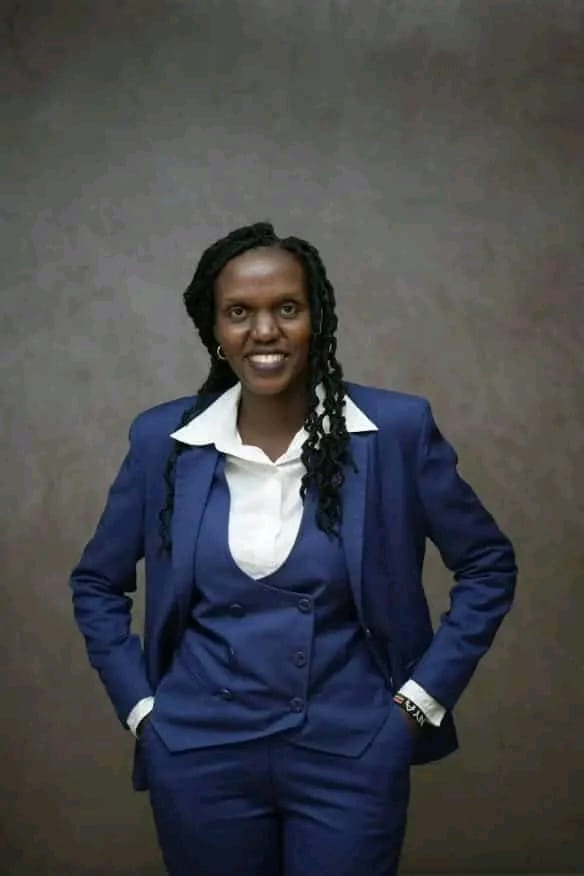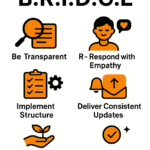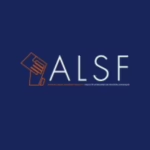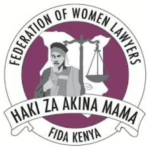There are various reasons for joining the legal profession, one of them is that the practice of law is a callingConsequently, advocates, as officers of the court, take an oath to uphold and protect the Constitution of Kenya.
Today, we go back to basics as we view the legal profession from a vocational perspective. We feature Ruth Wanjiku Omari, an Advocate of the High Court who practices law at Lawrence Obonyo Legal Advocates, a firm with offices in Mombasa and Diani. Ruth’s guiding principle as an advocate is that the law is a calling, meaning it requires sacrificing personal comfort for the greater good now and then.
In part one of our ‘A Lawyer for the People’ series, we explored Public Interest Litigation (PIL) as a tool for furthering social justice. Today, we explore pro bono services, a tool that Ruth often employs in her calling as an Advocate of the High Court of Kenya. Get inspired as she narrates the backstory that earned her recognition at the first-ever LSK Legal Awareness Week Gala Dinner, and explore why she believes that more lawyers should embrace pro bono work.
Why Human Rights and Social Justice Are Close To My Heart
Ruth considers herself a general practitioner, but when matters of human rights violations arise, best believe she’ll be among the first to answer the call to represent the oppressed. Her desire to uphold human rights stems from her upbringing in a patriarchal society.
“I grew up in a society that valued male children more than females, meaning girls were somewhat neglected, which never sat well with me.” Besides the disparity between boys and girls, Ruth also witnessed gender-based violence against some of the women in her community, including her relatives. Although she could not intervene as a child, the instances planted in her the resolve to become a human rights lawyer.
“The violations against women and children in my community made me decide that when I grow up, I’m going to champion women’s and children’s rights. However, when I grew up, I learned that I don’t need to be biased; I can represent anyone who deserves to be represented.”
Like most young lawyers with a bias for human rights, Ruth’s top considerations when seeking opportunities to practice the law were in NGOs and civil society organizations that focus on human rights. Unfortunately, none of the opportunities materialized. Ruth ended up working at a law firm. Still, her passion for human rights remains, iterating the fact that the legal profession is a calling and that, as a lawyer, you have a duty to uphold the rule of law regardless of your designation or area of practice.
“If I can’t get through the door that I want, I will go through the one that is open.” Consequently, Ruth does a lot of pro bono work. She, therefore, didn’t have to think twice when the Law Society of Kenya (LSK) called upon pro bono advocates to come forward and defend the rule of law. The assignment included representing the people who had been arrested or violated for agitating for a better Kenya during the 2024 anti-finance bill protests.
Heeding the Call to Defend the Constitution: Anti-finance Bill Protests 2024
In late June 2024, thousands of Kenyans took to the streets in response to the passing of the Kenya Finance Bill 2024. The bill proposed tax increases, which many viewed as draconian. Ruth was in Diani as the protests raged on. joined a WhatsApp group created by LSK officials to keep track of where and when her pro bono legal services would be required.
Her first experience as a lawyer for the people during the protests was when she represented the first protester to be arrested in Ukunda, Diani. Although the Diani police primarily arrested him for holding a placard, they seemed irritated that the protester was a foreigner. “By the time we got to him, he was in bad shape because the police had roughed him up. Moreover, the process of bailing him out took longer than anticipated because he had been referred to the DCI’s anti-terrorist police unit, which was unnecessary.” Fortunately, Ruth and her colleagues managed to secure his unconditional release.
A Selfless Sacrifice for the Greater Good
 The second incident, during which Ruth facilitated the release of protesters, will forever be etched in her mind. She made a selfless decision in silence, but karma rewarded her selflessness in public.
The second incident, during which Ruth facilitated the release of protesters, will forever be etched in her mind. She made a selfless decision in silence, but karma rewarded her selflessness in public.
It was July 23rd, 2024, and Ruth was walking in her office at Ukunda as usual. At around 11:00 a.m., she received the devastating news that her mother had passed on. Ruth informed her boss of her bereavement, and he immediately granted her compassionate leave.
Later that afternoon, Ruth’s friends, unaware of the personal loss she was processing, informed her that three protesters had been arrested at Naivas Ukunda. Setting her grief aside, Ruth rallied a colleague, and together, they went to the police station in Ukunda. “When I received that call, I felt I had two choices. One, I could grieve and cry all day for my mom, which was in order. However, it was not lost on me that at the end of the day, I had this duty. I felt that It was a higher calling for me because I couldn’t change the fact that my mom had rested. But what about those people? Would I abandon them in police custody so that all four of us suffer?”
Unfortunately, the three protesters were not at the police station. It took Ruth and her colleague a while to establish that the three had been detained by the OCS at Naivas Ukunda, so they headed there.
At Naivas Ukunda, the OCS was adamant that he wouldn’t release them. “He was open enough to inform me that he had received orders from above not to release them. He further stated that if he was going to release the protesters to us, we needed to raise a cash bail of KES 10000 per head.”
Ms. Ruth negotiated with the OCS and asked him if they could reconvene later in the day. In the meantime, she contacted Haki Yetu, a civil rights NGO in Mombasa, and liaised with one of its counsels to raise the cash bail. Ruth, her colleague, and the Counsel from Haki Yetu deposited the cash bail, allowing all three protesters to be released later that night.
Ruth is a giver, and she acknowledges that she derives joy and satisfaction from solving problems. “If I can solve your issue before attending to mine, I’ll do just that. Some people say that it’s a bad thing, but as long as I can help you get justice, I will sleep a happy soul.” This mantra motivates Ruth to take up as many pro bono cases as she can and ensure justice remains the shield and defender for as many marginalized people as she can reach. Ruth is a pillar, debunking the myths and stereotypes that portray lawyers as heartless and selfish.
“There are three vocations: medicine, evangelism, and law. So, in as much as the law is a profession, it is also a calling. One thing I learned early on is not to jump into a career for the sake of it because once something is calling to you, it comes naturally.”
Ruth’s conscious decision to shelve her grief while fighting for the freedom of total strangers did not go unnoticed. One of the people who was touched by her selflessness at the lowest moment of her life was LSK’s Coast Representative, Elizabeth Wanjeri. Ms. Wanjeri fronted Ruth’s name to the LSK council, and that is how she featured among the lawyers honored by LSK’s President Faith Odhiambo during the PIL Gala Dinner hosted in Nairobi in November 2024. In addition, LSK Mombasa also acknowledged and awarded Ruth’s efforts during their end-of-year soiree. While she loves what she does, she expresses immense gratitude for the recognition and appreciation from her society. “I do it because it’s what I do best, not with the expectation to be noticed, but being noticed is humbling.”
The Work is Plenty, but the Workers are Few: A Call to Lawyers to Embrace the Pro Bono Spirit
One of the challenges that the LSK encountered in executing the 2024 Legal Awareness Week was maximizing its reach across the country. So, how can the law society help cultivate a culture of giving back and championing social justice in the legal profession via pro bono services?
For Ruth, getting more lawyers to embrace social justice through pro bono work starts by sharing the bigger picture. For one, the beauty of the legal profession is that having a bias in one practice area does not stop you from practicing in other areas. She hopes that the LSK can host more seminars that encourage lawyers to offer pro bono services. “Yes, you can continue doing whatever you do, but it wouldn’t hurt to carve out some time for pro bono work. No one is ever too busy to spare a few minutes.”
Ruth concludes that the call for more lawyers in the pro bono space is a worthy cause. “It does not make you less of an advocate. If anything, it opens you up to more opportunities because you are able to understand the social science of human beings and society. Pro bono work exposes you to the true nature of what the common ‘mwananchi’ is going through so that even as you represent them, you are conscious of their logic, reasoning, and the frame of reference that informs their behavior.”
She adds that the experience from pro bono work also adds rich insights when making resolutions. Moreover, when lawyers who do pro bono work and other professionals who have worked at the community level rise to decision-making offices like parliament, then we have people making laws while considering human rights because we have people who have a clue what the common ‘mwananchi’ goes through.
“Sometimes, when doing pro bono work, you represent people who have committed a petty crime, and it’s easy to write them off as criminals. However, do you ever stop to think about what basic need was missing in their home that occasioned them to commit the crime? I wish we could make favorable laws that don’t oppress people. Personally, I feel that as a country, Kenya is rich. If only we didn’t have impunity and misappropriation of funds, and if we had people who made the right resolutions and followed them, channeling the funds in the right direction.”
As highlighted earlier, although Ruth has yet to practice law in an organization with a bias for human rights, she remains hopeful. She counts the recognition by the LSK as one of the baby steps, but steps nonetheless toward her big, scary dreams of championing human rights in multinational organizations and other international platforms, including the International Criminal Court (ICC). “I’m still young, and as long as the good Lord gives me breath, I will practice the law.”
Today, she dedicates her award to her children. “I’d want someone to defend my children the way I defend people, even when I’m not around.” We join the LSK in celebrating her selflessness and wish her all the best as she lives out her calling as a guardian of the Constitution and a human rights warrior.











